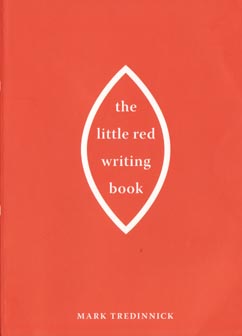My
thoughts about boys have traced an unexpected path, from
- how different boys are from girls, to
- the destructive games played by some boys, to
- whether violent toys like guns or swords are helpful, to
- the importance of stories for boys (and girls).
So what kinds of stories should we be sharing with our boys and girls? Do the books our children read, or the DVDs they watch, inspire characteristics like love, courage and perseverance? If I was exposing our 4-year old son Thomas to tales of noble quests, would he be out slaying dragons instead of killing the world?
I've been thinking about Thomas' exposure to three kinds of story:
computer games,
DVDs, and
books. I'll take them in turn and give you my thoughts so far. Those of you with boys - or girls - may find them interesting, or have something to add.

Thomas has always been a child who prefers
computer games to books. We read to him daily, and limit his time playing computer or console games to less than half an hour a day. He plays mainly educational and problem-solving computer games, some of which, like
Zoombinis (a bit like
Lemmings with a quest) combine logical thinking and adventure.

Thomas also loves console games like
Croc and
Crash Bandicoot. They're not overly violent or bloodthirsty, and they involve overcoming obstacles and navigating various levels in a quest to overcome enemies and rescue small furry creatures. I think they're quite appropriate for the imagination of an active boy.

As for
DVDs, some of the stories Thomas watches definitely appeal to the adventurous pre-school imagination:
Harold and the purple crayon,
The land before time, and
Harry and his bucket full of dinosaurs. I love the way these stories encourage children to explore different worlds in their imaginary play. But I'd hardly describe them as noble quests, and the values they teach are pretty much limited to tolerance and overcoming fear.

We occasionally watch movies as a family like
Finding Nemo and
The Incredibles, which at least model courage, perseverance and family loyalty (and tolerance again - funny how often that comes up). Thomas is nearly old enough for
The Chronicles of Narnia (many of Thomas' pre-school classmates already watch Harry Potter and Spiderman, but I think they're too bloody, scary and confusing for a 4-year old).

I love collecting
books, and I'm always looking for the rare picture books which encourage children's imagination and sense of adventure. Here's some I'm thinking of re-reading to Thomas: Maurice Sendak's
Where the wild things are, Frances Thomas'
One day, Daddy, Alison Lester's
The journey home, Jane Ray's
The hidden forest, Crockett Johnson's
Harold and the purple crayon, Jan and Stan Berenstain's
Bears in the night, Anita Jeram's
I love my little storybook and Paul Geraghty's
The great knitting-needle hunt.

I'd like to read Thomas our picture book version of
The Lion, the Witch and the Wardrobe, illustrated by Christian Birmingham. I don't usually like abridged versions, but this one's beautifully told, exquisitely illustrated, and faithful to the original.
Of course, noble or not, there's always fairy tales, like
The Orchard Nursery Story Book. And there's bound to be some collections of myths and old tales re-told for a young audience which I don't know about (please tell me if you know of any!).

Most of all, I've been inspired to dust off
The Children's Treasury of Virtues, a collection of stories aimed at "training the heart and mind toward good things: good habits, good attitudes, good behaviour." And yes, it's a little preachy in parts, and has a leaning towards American stories. But it's mainly a collection of fine old tales, beautifully told and illustrated: Peter and the dike, the tortoise and the hare, Genghis Khan and the hawk, St. George and the dragon, David and Goliath, Helen Keller, Theseus and the Minotaur.
Knowing Thomas, he will have his own ideas about whether he wants to listen to these stories. I'm thinking of setting aside half an hour after lunch for reading them together, and taking turns to choose a book, since the routine and choice will encourage him to read them with me. So far, he likes the idea. But we'll see how it goes!!
There's one book I haven't mentioned: the story of the greatest quest of all, an enormous collection of adventure stories which make lovely every kind of noble quality. The best book for boys - and girls - on the planet: the
Bible. And we do read that to Thomas every day.
If you have any other ideas about tales of noble adventure for young children, please add your suggestions to the comments.For the moment, chapter books are probably beyond Thomas, although I know some 4-year olds enjoy them. One of these days I'll get around to a post I've been dreaming about, on fantasy and adventure stories for older children: but that will have to wait! And there are many other wonderful picture books I would love to mention, but again that's a post for another day.
 My son Ben (7) has one of those brains which gathers facts like a woolly jumper collects lint.
My son Ben (7) has one of those brains which gathers facts like a woolly jumper collects lint.

























